How to Get the Most Out of Multi-Stakeholder Initiatives
Learn How to Get The Most From Multi-Stakeholder Initiatives in Healthcare
Multi-Stakeholder Initiatives (MSIs) work in virtually every business and social sector to achieve such far-reaching goals as igniting and driving innovation, broadening markets and improving their performance, diminishing socioeconomic disparities and furthering equity, and advancing information sharing and interoperability.
Webinar: Future of Oncology Care: Delivering on Value-Based, Patient-Centered Care
Overview
We are amid a significant transformation in healthcare. The journey for patients, too often siloed and isolated, has moved from “traditional” to “smart,” creating a patient-centered and engaging approach to care. By leveraging virtual care platforms, interoperable data, remote care and monitoring, and predictive analytics and artificial intelligence, we are realizing the promise of a real, value-based, hybrid care model.
What You’ll Hear
True care coordination requires actual engagement, and meaningful, empathetic interactions, not just episodic answering of surveys or secure messages directed to a patient's inbox.
During this webinar, you’ll learn how Jasper Health is tackling longstanding issues with interoperability and workflow inefficiencies by providing patients and caregivers with an engaging, highly valuable guided concierge service. This service leverages chat, telemedicine, and human coaching to deliver hybrid care guidance, and leapfrog over the current friction points in the care experience.
Learn how these interactions provide psychosocial insights, navigation, and guidance across the cancer continuum for patients and caregivers.
- Payors – Learn how a hybrid care model enables human-led navigation and guidance, provides whole-person insights, and increases member engagement and satisfaction.
- Employers – Learn how a hybrid care model connects employees with concierge care from diagnosis through return to work, providing psychosocial support, and enabling access to resources and best in class care.
- Patients – Learn how a concierge model, like Jasper Cancer Care Companion, can improve you or your loved one’s cancer care experience.
Featured Speakers
- Len Lichtenfeld, MD MACP, Chief Medical Officer, Jasper Health
- Amy Low, Managing Director, Fellowships and Nonprofit Media, Emerson Collective
- Adam Pellegrini, CEO and Co-Founder, Jasper Health
Sponsored by
![]()
Webinar: Future of Oncology Care: Delivering on Value-Based, Patient-Centered Care
Overview
We are amid a significant transformation in healthcare. The journey for patients, too often siloed and isolated, has moved from “traditional” to “smart,” creating a patient-centered and engaging approach to care. By leveraging virtual care platforms, interoperable data, remote care and monitoring, and predictive analytics and artificial intelligence, we are realizing the promise of a real, value-based, hybrid care model.
WEBINAR: Paging Dr. Burnout: Why Technology Should Improve, Not Impede, Physician Experience and Patient Care
Although many provider organizations, physicians, and health plans see the value in moving from fee-for-service to value-based care, the problem can’t be solved by technology alone. Often, it is not only a technology problem – it’s a clinical workflow problem. The result of current practices is an alarming rate of physician burnout. Although government regulations and industry experts weigh in on the importance of both value-based care and interoperability separately, the two are interdependent. Electronic health records were made to improve healthcare, not impede it. Healthcare IT execs and physicians should work smarter, not harder, to solve for interoperability, exchange of data, and ease of use of electronic health records all in the name of reaching value-based care adoption and improving patient lives.
Why the Data Matters
A new survey reveals only 37% of payers and 58% of healthcare providers are very confident that their member/patient demographic information is correct. Having the most up-to-do date patient data within the EMR for pre-and post-visit encounters helps ensure accuracy and timely delivery of needed information. Accurate and up-to-date data, embedded in the clinical workflow and EMR at the point of care, improves physician experience and reduces administrative burden to help ensure revenue integrity.
Why Timing Matters
When it comes to capturing revenue and coding claims after a clinical encounter, timing matters. Having clinical decision support that can deliver clinical activity summaries in days not months will accelerate the move from fee-for-service to value-based care.
Why Communication Matters
Many health plans cite payer-provider communication as a primary barrier to accurate claims and in closing care gaps. It is critical to provide patient data directly within the physician’s preferred clinical workflow (inside the EMR) to enhance adoption and clinical action by surfacing key payer insights and data into a closed loop workflow.
Speakers:

Dr. Matt Lambert
Chief Medical Officer
Curation Health
Dr. Matt Lambert brings more than 20 years of experience as a clinician, CMIO, and change leader in value-based care, ensuring that patients receive more comprehensive care and that payers and providers better capture the value of their services. He is a practicing, board-certified emergency medicine provider who previously founded his own physician staffing company.
Dr. Lambert was one of the founding members of Clinovations. During his time there he served as part of the leadership team for several electronic health record implementations at the nation’s largest public health system in New York City, the University of Washington in
Seattle, Johns Hopkins, Barnabas Health, Medstar, and Broward Health. He is also the author off two healthcare books: Unrest Insured and Close to Change: Perspectives on Change and Healthcare for a Doctor, a Town, and a Country.

Steven Waldren
Vice President and Chief Medical Information Officer
American Academy of Family Physicians
Dr. Waldren is a family physician informaticist. He hold a Masters in Health Informatics from the Univ. of Missouri and a Medical Degree from the University of Kansas. He completed his family medicine residency at Wesley Family Medicine in Wichita, KS. In his current role at AAFP, he has increased the adoption of electronic health records in their membership for 10% to 40%+ over a 3 year period; and to over 70% today. He is a subject experts in physician Adoption of technology, health-IT standards, controlled terminology/ontology, health information exchange, health-IT policy, XML messaging and modeling, and clinical decision support.
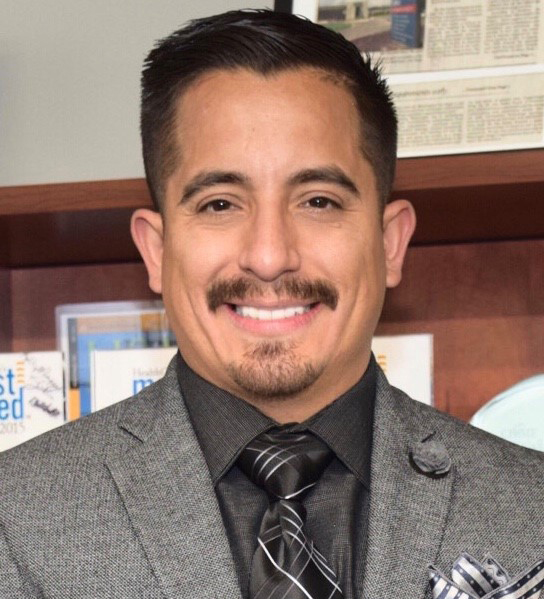
Mike Archuleta
Chief Information Officer
HIPAA & Information Security Officer
Mt. San Rafael Hospital
Recognized as a Top Hospital and Health System CIO to know and named a Rising Star in Healthcare, Michael is a cutting edge, innovative, visionary leader who possesses strong leadership skills with extensive experience and a proven track record of driving increased levels of productivity, profits, high integrity customer relationship skills and expert problem-solving approaches. Michael is an active member of the College of Healthcare Information Management Executives, a technology and cybersecurity advisor to several startups and an active speaker within the field of Health Information Technology.
Under Michael’s guidance and leadership, Mt San Rafael Hospital became one of the leading hospitals in the State of Colorado for leveraging advanced technology to enhance the patient and provider experience. With Michael’s innovative, driven approach, the hospital met HIMSS Analytics Stage Six, a feat only reached by thirty percent of U.S. hospitals. Leveraging advanced Information Technology to improve performance for value-based health care in the areas of infrastructure, business, administrative management, quality, safety, and clinical integration the Information Technology Department has also been presented the 2015, 2016, 2017, 2018, 2019 and 2020 Healthcare’s Most Wired Award which is given annually to the top hospitals in the country making the most progress in the adoption of Health Information Technology.

Jen Covich Bordenick
Chief Executive Officer
eHI
For over 20 years, Jennifer has focused on quality and innovative technology solutions to transform healthcare. As CEO, she provides leadership for research, education and advocacy components of eHealth Initiative and Foundation (eHI). Convening senior executives from every group in healthcare to discuss, identify, and share best practices that transform the delivery of healthcare. Focus areas: improving health and wellness through innovative solutions; interoperability; privacy concerns; artificial intelligence; payment models to support innovative care; and tech tools for chronic care. She led development of dozens of national surveys and published groundbreaking reports. As part of her work with the Foundation, she led grants with California Health Care Foundation, Commonwealth Fund, Aetna Foundation and Bristol Meyers Squibb Foundation. Jennifer is co-chair of the Federal HIT Policy Committee’s Strategy and Innovation Workgroup; member of the HL7 Board of Directors; and a member of the Diabetes Collaborative Stakeholder Panel. Jennifer is a faculty member for the MHA and MHIA graduate programs at George Washington University. Prior to joining eHI, Jennifer headed up the strategic marketing at OpenNetworks, Inc., focusing on security solutions for the healthcare industry. She led healthcare industry relations at MicroStrategy, Inc., focusing on data-mining solutions for the pharmaceutical and healthcare industry. She spent four years at the National Committee for Quality Assurance as Director of Policy and Product Development, helping develop national quality standards for healthcare organizations. Jennifer began her career at the George Washington University Hospital, Medical Center and Health Plan working on quality management initiatives, clinical pathways and healthcare administration. Jennifer earned a master's in Human Resource Development, completed coursework in health administration doctoral program at GWU, and resides in Maryland with her husband and two children.
This webinar is supported by

WEBINAR: The New Era of Healthcare - Patient Engagement and Consumerism
Despite investment in new consumer-facing digital health technologies, health plans and providers still struggle to meaningfully engage vulnerable populations. Join eHI in a discussion with experts to explore how to increase engagement of individuals at risk of worsening physical and mental conditions, including diabetes, social isolation, and injuries from falling. In this webinar, you’ll hear from two panels regarding the various ways that technology can be utilized to target and engage at-risk populations.
Speakers:

Amy McDonough
Managing Director & General Manager
Fitbit Health Solutions at Google
As the Chief Operating Officer for Fitbit Health Solutions, Amy leads the team working with employers, health plans and health systems to design solutions and programs focused on engagement, positive return on investment and health outcomes. Before her COO role, Amy took on several key positions leading Fitbit’s B2B efforts. Prior to Fitbit, Amy held strategic roles at CNET Networks, including Director of Audience and Content Development for the Community Division and Director of Strategic Partnerships for the Network. Amy has a bachelor’s degree from Merrimack College in Andover, MA and a Professional Certificate in Integrated Marketing Communications from the UC Berkeley Extension program.

Stacy Ward-Charlerie, PharmD, MBA
Director, Product Development
Strategy & Growth Department
AllianceRx Walgreens Prime
Stacy Ward-Charlerie is a Clinical Informatics Pharmacist with more than a decade of experience working in product and informatics roles. Currently, she is the Director of Product Development Solutions at AllianceRx Walgreens Prime, one of the nation’s largest specialty pharmacies. In this role she is responsible for leading the development new products and programs for payer and pharma clients. Prior to joining AllianceRx Walgreens Prime, Dr. Ward-Charlerie served as the President of WardRx Consulting, a firm providing consulting services for organizations seeking to use or enhance health information technology to improve clinical outcomes.
Previously, she held various roles at Surescripts, the nation’s largest health information network. While there, she led the growth and innovation of their Medication History product portfolio. She was also instrumental in launching the Critical Performance Improvement Program, working across the Surescripts Network Alliance to improve the quality of e-prescriptions. Dr. Ward-Charlerie spent her early career in the intersection of managed care and informatics working for Kaiser Permanente focusing on EHR system configuration to support utilization/formulary management and quality/safety initiatives.
Dr. Ward-Charlerie has published several peer-reviewed research articles on the interoperable exchange of healthcare data. She has served as an adjunct clinical faculty member at Notre Dame of Maryland University, graduate faculty at George Mason University and precepts PharmD candidates from local universities.
She received a Bachelor of Science degree in Biology from Nova Southwestern University, a Doctor of Pharmacy degree from Howard University College of Pharmacy, and completed a PGY1 residency program with Kaiser Permanente Mid-Atlantic States. She also holds an MBA in Healthcare Management.
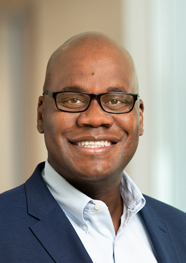
Henry Archibong
Associate Vice President, Innovation Solutions
Inovalon
Mr. Archibong serves as Associate Vice President of Innovation Solutions for Inovalon, leading product innovation, interoperability strategy and operations for the Company’s payer and provider business units, as well as efforts to expand Inovalon’s connectivity infrastructure.
Mr. Archibong has nearly two decades of experience in healthcare IT. He began his career with Johnson & Johnson (J&J), where he successfully streamlined IT project execution and resource management across all 250 J&J operating companies globally.
Mr. Archibong transitioned into healthcare when was tapped to join Cooper University Health Care, in Camden, NJ, as their Director of Enterprise Applications. There, he successfully led the system-wide implementation and adoption of the Epic Electronic Health Record (EHR) for the health system.
He later joined Anne Arundel Medical Center (AAMC) in Annapolis, MD, as their Executive Director and Associate Chief Information Officer (ACIO). There he led several technology advancements for the health system, including the launch of a new Enterprise Resource Planning system, a Picture Archiving and Communication System (PACS), and deployment of Epic EHR across all of their ambulatory clinics. AAMC was recognized as one of the nation’s Most Connected Hospitals by U.S. News and World Report, as well as a HealthCare's Most Wired Hospital in 2015 and 2016 during his tenure as ACIO.
Prior to joining Inovalon, Mr. Archibong served as the Vice President and Site Executive for University of Maryland Capital Region Health in Prince Georges County, MD.
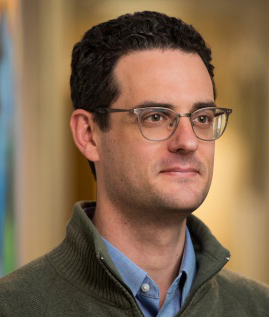
Fred Bentley
Managing Director, Policy
Avalere
Fred Bentley advises clients on health delivery and payment innovation, providing analytic and strategic insight on issues related to the delivery of care.
As an expert in fields ranging from payer strategy to hospital–physician alignment and post-acute care, he has worked with providers, including integrated delivery networks, academic medical centers, post-acute providers, and long-term care organizations as well as national and regional health plans. Over the past 5 years, his work has focused on supporting health systems engage in Medicare and Medicaid payment and delivery system transformation initiatives.
Prior to joining Avalere, Fred was a principal in the Accountable Care Solutions practice at The Chartis Group. In this role, he worked with leading hospitals and health systems in developing strategic roadmaps to guide their clinical innovation, population health, and cross-continuum integration initiatives. He also served as a managing director with The Advisory Board Company, managing a team of consultants and analysts who supported provider organizations ranging from physician groups and health systems to post-acute care providers.
Fred holds an MPP and MPH from the University of California, Berkeley, and a BA in political science from Haverford College.

Hope Kragh
Vice President, Health Plan Solutions
Amwell
For over 30 years, Hope has leveraged her passion and energy to drive her work with employers, health plans, and health systems to manage their enormous investment in healthcare for employees, members and patients. At both large and start-up healthcare companies, Hope created and executed client experience + success strategies, and directly impacted business development and strategic partnership results. She joined Amwell as VP, Health Plan Solutions, in 2020 to lead the company’s strategic work with health plans’ telehealth strategies following several years with start-up Collective Health where she developed the vision, design, and execution of a full-scale client experience team + strategy for a business portfolio spanning multiple segments. Hope’s additional experience spans over 25 years in national health plan carriers such as Anthem, UHC and CIGNA.
Hope has deep knowledge of the healthcare industry overall including network delivery models, population health and employee benefits strategies, plan operations, marketing, analytics, and consumer insights, and contract negotiations. She is passionate about disruptive change that will improve our healthcare delivery system and patient experience + outcomes and has been an active participant in health industry initiatives led by Pacific Business Group on Health, Catalyst for Payment Reform and the Purchaser Value Network Council.
Hope has also been a keynote speaker and expert panelist for healthcare industry events throughout the country, including MedCity Converge Conference, Health2.0, The Conference Board Healthcare Conference, Silicon Valley Employers' Forum Innovation Summit, Collective Create Health Conference, National Sales Meetings, and numerous industry fireside chats.

Eric Sullivan
Senior Vice President, Innovation and Data Strategies
Inovalon
Mr. Sullivan serves as Senior Vice President of Innovation and Data Strategies at Inovalon, supporting the innovation towards new product and technology solutions and providing executive leadership over all data integration, management, and governance programs. For more than 25 years, Mr. Sullivan has been leading clinical innovation and data-driven solutions in a variety of roles in the healthcare sector—with a keen focus on developing data-driven models to transform healthcare by improving quality, outcomes, and efficiency. He has held leadership positions in some of the nation’s largest health plans including UnitedHealthcare and led teams in the clinical care setting to deliver patient-centered, patient specific health care. His current role advances patient-precision analytics by leveraging big data technologies, Natural Language Processing (NLP), interoperability and real-time clinical data patient profiling.
Mr. Sullivan received his M.S. in Health Care Administration as well as an M.B.A from the University of Maryland. Mr. Sullivan also holds a B.S. in Neurobiology from the University of Maryland College Park.
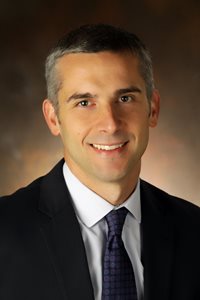
Will Kilbreth
Senior Vice President and Chief Information Officer
Maine Community Health Options
Will has over 20 years of experience in the healthcare, technology, and finance fields. Prior to joining Community Health Options, Will was the Deputy Director for Maine’s Dirigo Health Agency, overseeing technical and financial operations. During this time, Will also served as Acting Deputy Director for the Maine Health Data Organization, the state’s all payer claims database. In other roles he has focused on the delivery of business systems and analytics for local and international clients, including MaineSense, Bowdoin, Reuters, AT&T, and British Telecom. Will has a BA in English Literature and Philosophy from McGill University.

Jen Covich Bordenick
Chief Executive Officer
eHI
For over 20 years, Jennifer has focused on quality and innovative technology solutions to transform healthcare. As CEO, she provides leadership for research, education and advocacy components of eHealth Initiative and Foundation (eHI). Convening senior executives from every group in healthcare to discuss, identify, and share best practices that transform the delivery of healthcare. Focus areas: improving health and wellness through innovative solutions; interoperability; privacy concerns; artificial intelligence; payment models to support innovative care; and tech tools for chronic care. She led development of dozens of national surveys and published groundbreaking reports. As part of her work with the Foundation, she led grants with California Health Care Foundation, Commonwealth Fund, Aetna Foundation and Bristol Meyers Squibb Foundation. Jennifer is co-chair of the Federal HIT Policy Committee’s Strategy and Innovation Workgroup; member of the HL7 Board of Directors; and a member of the Diabetes Collaborative Stakeholder Panel. Jennifer is a faculty member for the MHA and MHIA graduate programs at George Washington University. Prior to joining eHI, Jennifer headed up the strategic marketing at OpenNetworks, Inc., focusing on security solutions for the healthcare industry. She led healthcare industry relations at MicroStrategy, Inc., focusing on data-mining solutions for the pharmaceutical and healthcare industry. She spent four years at the National Committee for Quality Assurance as Director of Policy and Product Development, helping develop national quality standards for healthcare organizations. Jennifer began her career at the George Washington University Hospital, Medical Center and Health Plan working on quality management initiatives, clinical pathways and healthcare administration. Jennifer earned a master's in Human Resource Development, completed coursework in health administration doctoral program at GWU, and resides in Maryland with her husband and two children.
This webinar is supported by
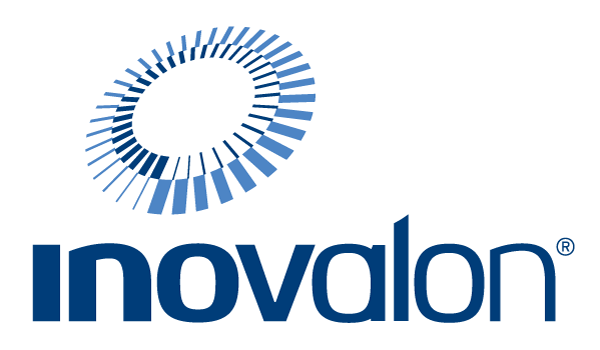
WEBINAR: COVID-19: Lessons Learned That Can Be Applied to Value-Based Care
Within a short period of time, hospitals and healthcare facilities have innovated new ways to adapt and respond to COVID-19 - with technological advancements leading the way. This webinar will highlight lessons learned from healthcare providers using innovative technologies to manage the pandemic response. The discussion will focus on the ROI and rise of digital health during COVID-19 to address the following:
• Enhancing patient-centered care
• Reducing readmission rates
• Clinical efficiency of home-based care
Speakers:

Natalie Sensabaugh
Healthcare Customer Success Director
Everbridge
Natalie brings more than 15 years of expertise working within the healthcare industry, bringing a valuable blend of healthcare technology and clinical acumen to her role. She has demonstrated success in delivering innovative healthcare technology solutions, drawing on previous experience gained as a clinical technology consultant at a top clinical software firm and clinical expertise gained while working as an ICU nurse at several of the largest U.S. hospitals. Natalie has a strong track record of transforming innovative healthcare concepts and technologies into solutions that improve quality, patient safety and increase hospital workflow efficiencies for better patient outcomes.

Eric Chetwynd
General Manager, Healthcare Solutions
Everbridge
Eric oversees Everbridge’s global portfolio of healthcare solutions and brings more than 20 years of experience in creating and leading innovative software solutions to market. As an experienced product solution leader, he has launched and grown multiple successful SaaS healthcare digital products globally. In his role at Everbridge, he works closely with the healthcare team to deliver an end-to-end customer experience that fits their unique needs, equipping them with innovative technologies and strategies to ensure they are always ready to adapt and respond to a host of risks, whether a high-acuity clinical case or a critical event.
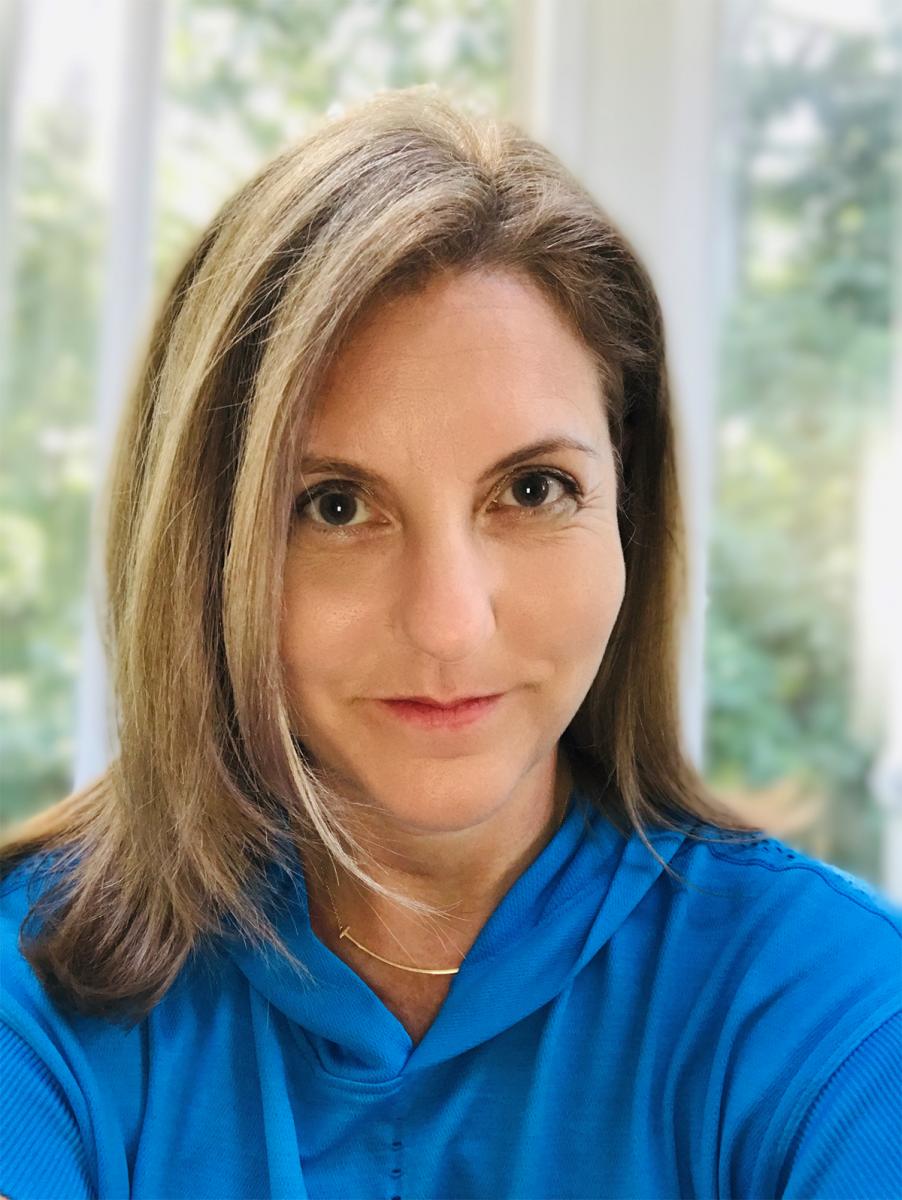
Jen Covich Bordenick
Chief Executive Officer
eHI
For over 20 years, Jennifer has focused on quality and innovative technology solutions to transform healthcare. As CEO, she provides leadership for research, education and advocacy components of eHealth Initiative and Foundation (eHI). Convening senior executives from every group in healthcare to discuss, identify, and share best practices that transform the delivery of healthcare. Focus areas: improving health and wellness through innovative solutions; interoperability; privacy concerns; artificial intelligence; payment models to support innovative care; and tech tools for chronic care. She led development of dozens of national surveys and published groundbreaking reports. As part of her work with the Foundation, she led grants with California Health Care Foundation, Commonwealth Fund, Aetna Foundation and Bristol Meyers Squibb Foundation. Jennifer is co-chair of the Federal HIT Policy Committee’s Strategy and Innovation Workgroup; member of the HL7 Board of Directors; and a member of the Diabetes Collaborative Stakeholder Panel. Jennifer is a faculty member for the MHA and MHIA graduate programs at George Washington University. Prior to joining eHI, Jennifer headed up the strategic marketing at OpenNetworks, Inc., focusing on security solutions for the healthcare industry. She led healthcare industry relations at MicroStrategy, Inc., focusing on data-mining solutions for the pharmaceutical and healthcare industry. She spent four years at the National Committee for Quality Assurance as Director of Policy and Product Development, helping develop national quality standards for healthcare organizations. Jennifer began her career at the George Washington University Hospital, Medical Center and Health Plan working on quality management initiatives, clinical pathways and healthcare administration. Jennifer earned a master's in Human Resource Development, completed coursework in health administration doctoral program at GWU, and resides in Maryland with her husband and two children.

Wanneh Dixon
Director, Strategy and Programs
eHI
Wanneh previously worked as the Corporate Engagement Manager for FHI 360, an international development firm focused on global health, education and economic empowerment. At FHI 360 she managed the private sector engagement strategy to cultivate relationships with corporations, foundations, donors and membership organizations. Her global health portfolio focused on maternal mortality, non-communicable diseases, and health systems strengthening.
Wanneh holds a BSc in Information Technology from Herzing College and a M.A. in Global Development and Social Justice from St. John’s University. She lives in Maryland and serves on the Human Services Advisory Commission for the City of Rockville.
Wanneh directs our social determinants of health (SDOH) and data analytics programs.
This webinar is supported by

WEBINAR: The Case For a Learning Health System - Lessons From COVID
When COVID-19 spread across the country, it took months for hospitals to piece together the best treatment options, share those learnings and for providers to adopt them. The traditional medical approach is too slow for today’s public health crises.
It's time for the American healthcare system to learn from the past and accelerate best practices. We can build systems that combine knowledge from providers with machine learning to intelligently apply that information to digital clinical pathways – giving providers the best of what's learned in the profession at any given time. Experts call this a “Learning Health System.”
Hear from a panel of experts as they discuss the importance of a Learning Health System, digital clinical pathways, and the impact on healthcare quality.
You will learn:
- Why traditional approaches to formulating, publishing, and evolving clinical guidelines are too slow for a public health crisis like a natural disaster or a pandemic
- How adopting digital clinical pathways can help mitigate public health crises and improve healthcare
- The definition of Learning Health System and how it can improve the quality of healthcare
Moderator:

Kat Jercich
Senior Editor
Healthcare IT News
Kat is the senior editor at Healthcare IT News, with bylines in the New York Times, the Washington Post, the Advocate, and others. Before HITN, Kat was managing editor and vice president at the Rewire News Group.
Speakers:

Michael S. Barr, MD, MBA, MACP, FRCP
Executive Vice President, Quality Measurement and Research Group, NCQA
Michael S. Barr is a board-certified internist and Executive Vice President of the Quality Measurement & Research Group (QMRG) at the National Committee for Quality Assurance (NCQA). His portfolio includes performance measurement development, research and analysis, management of contracts and grants, and NCQA’s consulting activities. Dr. Barr leads the digital measures strategy for HEDIS® and contributes to NCQA’s other strategic initiatives, public policy, and educational programs. Prior to joining NCQA in May 2014, Dr. Barr was Senior Vice President, Division of Medical Practice for the American College of Physicians (2005 – 2014).
From 1999–2005, Dr. Barr was chief medical officer for Baltimore Medical System, Inc., a Joint Commission accredited federally-qualified health center. He practiced internal medicine in the Division of General Internal Medicine at Vanderbilt University from 1993–1998 and held various administrative positions, including physician director, Medical Management Programs for the Vanderbilt Medical Group. From 1989–1993, Dr. Barr served in the United States Air Force as Chief, Internal Medicine at Moody Air Force Base, Georgia. He is a Master of the American College of Physicians and a Fellow of the Royal College of Physicians.
Dr. Barr has a Bachelor of Science degree in forest biology from the State University of New York, College of Environmental Science and Forestry (1982). He attended New York University School of Medicine (1986) through the U.S. Air Force Health Professions Scholarship Program, completed his residency in internal medicine at Rush-Presbyterian-St. Luke’s Medical Center in Chicago, Illinois, (1989) and earned a Master of Business Administration degree from the Vanderbilt Owen Graduate School of Management (1996).

Blackford Middleton, MD, MPH, MSc, Chief Informatics & Innovation Officer, Apervita
Dr. Blackford Middleton is the Chief Informatics and Innovation Officer at Apervita, Inc. He is also Adjunct Faculty member at the Stanford University Medical Center Clinical Excellence Research Center. Previously, he was a professor of Biomedical Informatics, and or of Medicine, at Stanford, Harvard, and Vanderbilt Universities, and he held executive leadership roles at Stanford University Medical Center (CMIO), MedicaLogic/ Medscape (CMO), Partners Healthcare System (Director Clinical Informatics R&D), and at Vanderbilt (CIO). Dr. Middleton’s work is focused on clinical informatics – the applied science surrounding strategy, design, implementation, and evaluation of clinical information systems in complex environments. He was PI for the AHRQ-funded CDS Consortium, and the ONC-funded Advancing CDS projects among many other R&D efforts in CDS.
He is Past-Chair of the AHRQ-funded Patient-centered Clinical Decision Support Learning Network, and a member of the CMS Alliance for Modernizing Healthcare. He currently serves on the Editorial Board of the Journal of Learning Health Systems, and the AHRQ ACTS Roadmap Workgroup.
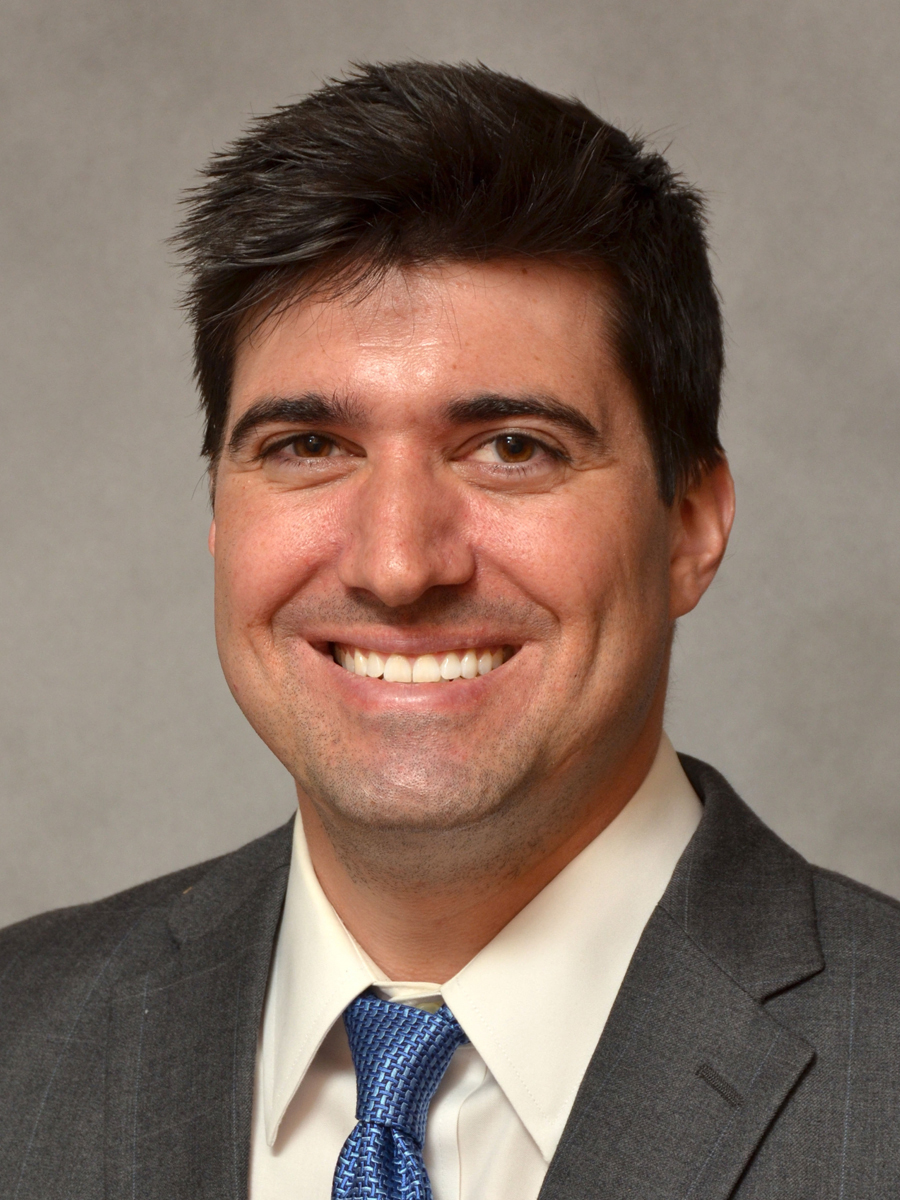
Christopher J. Tignanelli, MD, Assistant Professor, Department of Surgery (UMN)
Dr. Christopher Tignanelli is an Assistant Professor in the Division of Critical Care and Acute Care Surgery at the University of Minnesota and Affiliate Faculty in the Institute for Health Informatics. Dr. Tignanelli completed his General Surgery residency at the University of North Carolina - Chapel Hill and a fellowship in Surgical Critical Care at the University of Michigan. His clinical specialties include Trauma, Surgical Critical Care, ECMO, and Emergency General Surgery. His research interests are focused primarily on leveraging medical informatics interventions to improve healthcare quality. His research has identified significant variation in the delivery of evidence-based practice across healthcare institutions nationally. He has developed, implemented, and completed iterations through the learning health system improvement cycle with various health information technology (HIT) interventions including mobile HIT applications, various artificial intelligence solutions using natural language processing or computer vision, and clinical decision support interventions. In this panel, he will be sharing a clinical decision support intervention implemented to improve adherence with practice guidelines for anticoagulation in COVID-19.
This webinar is sponsored by Apervita.
WEBINAR: The Case for a Learning Health System: Lessons from COVID
When COVID-19 spread across the country, it took months for hospitals to piece together the best treatment options, share those learnings and for providers to adopt them. The traditional medical approach is too slow for today’s public health crises.
A Building Block for Value-Based Health Care
Over the past 10 years, the healthcare system has undergone a significant shift in the structure of health care delivery. Many hospitals and physician groups have organized themselves to address the most pressing national priorities in health care: controlling increases in the cost of care and improving the quality of care that US residents receive. Payers, both public and private, have supported this shift by implementing new alternative models of payment that incent the delivery of cost-efficient,high-quality care. The most promising alternative payment model to fee-for-service payment is the accountable care organization (ACO)model. Some available evidence suggests that ACOs, both for Medicare beneficiaries and for commercially insured patients, reduce total cost of care and improve quality.1-3Although there are different ways to construct ACO models, at its core, an ACO is a contract between clinicians and the payer to meet rigorous clinical quality and experience goals and lower spending
Paying for Value in Behavioral Health
This report attempts to offer guidance to state Medicaid programs and other stakeholders on the lessons learned by states that have sought to develop innovative behavioral health VBP initiatives. Section III summarizes the recent experiences of three states whose Medicaid programs have experimented with different types of behavioral health VBP models: Vermont, New York, and Tennessee.
The descriptions and assessments of these models are based on interviews with key stakeholders in each state and a broad review of publicly available materials. Section IV synthesizes key lessons learned from these states, including their challenges, successes, failures, and adjustments. Finally, Section V includes a discussion of California-specific considerations. This includes an overview of the existing Medi-Cal behavioral health system, with a focus on managed care structures and existing payment methodologies for behavioral health services. The conclusion synthesizes key lessons for Medi-Cal based on the analysis of other states’ efforts
